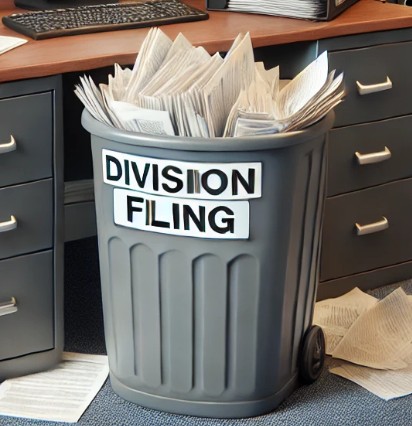‘the rise in offences has not been matched by a rise in the number of criminals being brought to justice‘
A 13/03/2019 submission to the Home Office, WMP&CC and the WMP intended to provide a different perspective on vehicle taking. A document voluntarily compiled, intended to help address the growing number of crime allegations.
The 21-page document was not compiled following a request; rather, it appeared there was a lack of understanding about the crime of vehicle theft and what could be done to curb it. It was hoped the writing would aid consideration of the issue, which appeared (see below) somewhat blinkered, even misguided. The document ‘introduction’ concluded:
- My view is that it is ONLY through joined-up thinking and co-operation between all relevant stakeholders (Police, manufacturers, finance companies, insurers and their loss investigators/adjusters) that we will keep ahead of the game when it comes to vehicle theft and outwitting the criminals who seek to make a living from it. I expand on this theme below, pointing out where various preventative initiatives have been undertaken and then failed for one reason or another.
There were several positive suggestions among the 20 headings presented – see below.

What became of the submission, what was considered, explored or adopted? Who knows … a request subsequently made of the Home Office, WMP&CC and WMP to determine who held the document, what had become of it
By early 2019, mention had been made of a ‘Vehicle Crime Taskforce’ (VCT), understood to be a Home Office initiative. It was reported that the West Midlands Police and Crime Commissioner (WMP&CC):
has agreed to help the government tackle car crime by making contributions to its new Vehicle Crime Taskforce.
The WMP&CC had been spearheading a countrywide campaign aimed at tackling the security weaknesses that exist in many keyless cars. source – 22/01/2019 PCC joins Vehicle Crime Taskforce.
Something had to be done; car thefts in the West Midlands had almost tripled since 2015
The WMP&CC made vehicle crime a top priority for West Midlands Police.
Vehicle crime then increased dramatically!
The Taskforce has a number of objectives or ‘actions’:
- Introducing tough new procedures for the salvage industry
- Restricting the sale of tools, both mechanical and electronic, which can be used to steal vehicles.
- Pressuring manufacturers to close security loopholes in their keyless technology.
- Improving vehicle security standards
- Clamping down on organised criminals making £millions by stealing, shipping abroad or chopping them up for sale as parts
The VCT was to meet every 6 months. Other than the Met, the West Midlands is the only force represented.
6 years on …
- The salvage industry appears unaffected. There has been some concern raised about those who provide replacement registration plates.
- Legislation to address the sale of security-bypass equipment is still being considered, but there has long been legislation to assist with this. ‘Security-bypass’ is apparently on the decrease … the law appears to be too little, too late.
- Manufacturers have taken action, but theft allegations continue
- Vehicle security standards may have improved but not noticeably insofar as thefts are concerned.
- The crime remains prevalent, with recoveries hardly affected. The risk/reward appears still to favour the activity.
As for the VCT and it meeting every 6 months. It met just that once!
The Metropolitan Police Service could shed no light on the VCT as, contrary to the WMP&CC post, the Met’ was not represented!
The VCT submission can be read here.
The document submitted 13/03/2019, was not acknowledged. No further was heard from the West Midlands Police (WMP) & Crime Commissioner, the WMP, or the Home Office to whom it was circulated.
In 2024, having learned that the VCT was a spectacular non-event, a failure in that it never met after 01/2019, I asked the WMP&CC, WMP and H.O. to provide the report and associated information i.e. to whom it was passed, any relevant comment or pertinent action.
Not one of the authorities could locate the submission. It appears it was ‘filed on division’ – police parlance for ‘tossed in the bin’.
09/05/2025 the following was presented to the NVCRP:
I have knowledge of the 2019 vehicle crime taskforce and submitted suggestions/information, seemingly not acted upon, lost – https://carcrime.uk/190313-u-k-vehicle-theft-complacency/
That VCT appeared akin to VCRAT; intended for appearance as opposed to making a difference. Some observations and considerations:
1. What is the extent of vehicle theft in the UK?
2. Figures vary & terminology confuse.
3. Data is inconsistent across crime recording systems, PNC & DVLA.
4. Vehicle taking methods remain unrecorded.
5. Vehicle crime questioning & recording is not standardised.
6. Privatise vehicle theft reporting? Without need for public funding – possibly.
7. Police Incident reports & Insurer claim accounts – why duplicate?
8. Recording undertaken in conjunction with readily available information & automatically analysed, profiled.
9. Simplify disclosure of vehicle theft reports to insurers to aid all – particularly victims.
10. Police letters to victims reviewed to benefit all – carefully constructed.
11. Quantify false vehicle theft allegations – who knows, who cares?
12. Aspects of ‘Operation Igneous’ are as relevant today as in 2000.
13. Manufacturers – stop blaming them & engage to reduce investigative burden.
14. Apply this engagement/cooperation to finance companies, tracking organisations and the DVLA – understand DPA.
15. Tracking companies – a central repository of fitments with consent to disclose/act
16. Extend NVCRP interest to false-plating/cloning – protect the integrity of the DVLA database and prevent abuse
17. A toolbox for officers – a knowledge pool – a 2009 meeting with AVCIS, suspecting they would not have the funding/resources – ‘The Archive’ https://web.archive.org/web/20100205113731/http://www.mycartoolbox.com/
18. Address the transfer of LoS data to VP companies – real time ideally – remove the 72 hour ‘window of opportunity’.
19. Place LoS data in the public domain – responsibly.
20. Create tools for the public to which the police have consented access.

